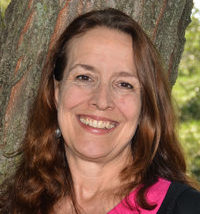
by Bobby Anderson, RN, Staff Writer
Through the Donald W. Reynolds Center of Geriatric Nursing Excellence, University of Oklahoma faculty and students were able to learn more about the evolving role of care coordination in nursing recently.
University of Missouri Sinclair School of Nursing’s Lori Popejoy, PhD, RN, FAAN, addressed attendees on the importance of care management in today’s nursing environment and beyond.
Fran & Earl Ziegler College of Nursing Interim Dean Gary L. Loving, PhD, RN applauded Popejoy’s insight.
“Dr. Popejoy’s visit to OUHSC was very timely,” Loving said. “Her background and expertise in care management provided valuable insight and guidance for the care management initiatives in which the College of Nursing and OU Medicine nursing personnel are engaged. “
According to the U.S. Census Bureau, the U.S. is reaching an unprecedented demographic shift, with almost 1/5th of the American population over the age of 65 by 2030. At the same time, system changes including shorter hospital stays and limited nursing homes leave a growing number of older adults at home for health care.
As Americans live longer, increased research and training is required to meet the need for geriatric care and quality aging.
Established in 2008 through a gift from the Donald W. Reynolds Foundation, the Reynolds Center of Geriatric Nursing Excellence at the Fran and Earl Ziegler College of Nursing is dedicated to ensuring that as the American population ages, there are increased cross-discipline solutions for community-based aging in place.
This approach to supports and interventions for older adults is emerging – one that enables older adults to maintain as much independence and dignity for as long as possible in their preferred setting, typically the home environment.
“We’re trying to avoid hospitalizations that don’t need to happen and certainly avoid rehospitalizations that could be prevented had we had better collaboration between the organization and the stakeholders, care providers, patients and our community providers overall,” Popejoy said. “Care coordination is all about how do we work with each other and communication patient and family needs so that we can meet them.”
Popejoy started her career as a diploma nurse before working in critical care and then hospital leadership for 13 years.
She went back for her BSN with an eye toward’s a master’s focused on geriatric care.
Popejoy lauded OU’s current curriculum that brings home the point to new nurses that care coordination is simply an extension of the nursing role.
But in today’s healthcare environment the true purpose may be getting muddled, in part, due to the nature of billing.
“I would say the answer is maybe we’ve over-embraced it in some respects,” Popejoy said. “There’s a lot of specialties that use care coordination. You can have different clinical specialists that have care coordinators but we are actually getting to the point where there are a lot of care coordinators but who is the primary coordinator that needs to be working with the patient and communicating outward?”
“I think we’ve almost created another layer of complexity that we haven’t quite worked our way through yet.”
Care coordination is identified by the Institute of Medicine as a key strategy that has the potential to improve the effectiveness, safety, and efficiency of the American health care system. Well-designed, targeted care coordination that is delivered to the right people can improve outcomes for everyone: patients, providers, and payers.
Although the need for care coordination is clear, there are obstacles within the American health care system that must be overcome to provide this type of care.
Preventable hospitalizations and duplicative tests increase health care spending. In fact, inadequate care coordination is estimated to have caused between $25 and $45 billion in wasteful spending in 2011 alone due to avoidable complications and unnecessary hospital readmissions.
“Care coordination is part of nursing practice. I call it the big C and the little C,” Popejoy said. “Care coordination is part of nursing and no matter what can not be removed from the profession of nursing. But then there is care coordination that occurs at a bigger level, to organize the care plan overall. That umbrella term is really the role that needs to be developed more fully.”

Small but BIG.
Small enough to care about you,
big enough to care for you!
We are welcoming experienced RN’s for all areas to apply!
· BEHAVIORAL HEALTH · CATH LAB RN · MED/SURG · EMERGENCY DEPT · CRITICAL CARE · SURGERY · LABOR AND DELIVERY · FLOAT POOL
myalliancehealth.com
EOE












